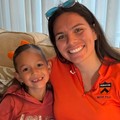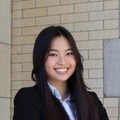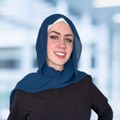DEI&B Bridging the Gap Scholarship
Therapeutic Associates Physical Therapy (TAI) believes in empowering TAI teammates and others pursuing a career in PT who belong to underrepresented groups to develop their clinical and leadership skills in order to help bridge the gap that exists in healthcare today.
When marginalized communities don’t have adequate representation, the care they receive can suffer due to biases and stereotypes. As a result, there is a disparity in care which can lead to increased pain, longer waiting times, and even the loss of life.
This scholarship aims to increase the representation of historically underrepresented populations in leadership by supporting students in their endeavors to become physical therapists.
Any minority graduate student may apply for this scholarship if they’re attending or applying for physical therapy or physical therapy assistant school.
To apply, tell us why you identify as a member of an underrepresented group and how you could benefit the physical therapy profession due to your unique background.
Please write an essay of no more than 600 words telling us how you would consider yourself a member of an underrepresented group. As a member of an underrepresented group, how could you benefit the physical therapy workforce and/or physical therapy profession because of your perspective?
Winners and Finalists
Winning Applications


Explore All Kinds of Scholarships for All Kinds of Students
FAQ
The application deadline is Jul 1, 2025. Winners will be announced on Jul 30, 2025.
Your privacy is a top priority on the Bold.org platform, and you can find our privacy policy in full here. You may opt out of communications from Bold.org at any time, and unless we’ve first notified you and gotten your consent, you’ll never receive communication from any third parties related to personal information you give us.
Award amounts per winner are designated by the donor. Check the award amount for a detailed breakdown.
The winner will be publicly announced on Jul 30, 2025. Prior to the announcement date, we may contact finalists with additional questions about their application. We will work with donors to review all applications according to the scholarship criteria. Winners will be chosen based on the merit of their application.
Award checks will be sent to the financial aid office of the winner's academic institution in their name to be applied to their tuition, and in the name of their institution (depending on the school's requirements). If the award is for a qualified educational non-tuition expense, we will work with the winner directly to distribute the award and make sure it goes towards qualified expenses.
Before we award the scholarship, the winner will be required to confirm their academic enrollment status. Depending on the circumstances, verification of Student ID and/or their most recent transcript will be required.
If you have any questions about this scholarship or the Bold.org platform, just email contact@bold.org and we’ll get back to you as quickly as we can.
Yes. The terms and conditions for this scholarship can be found here.
